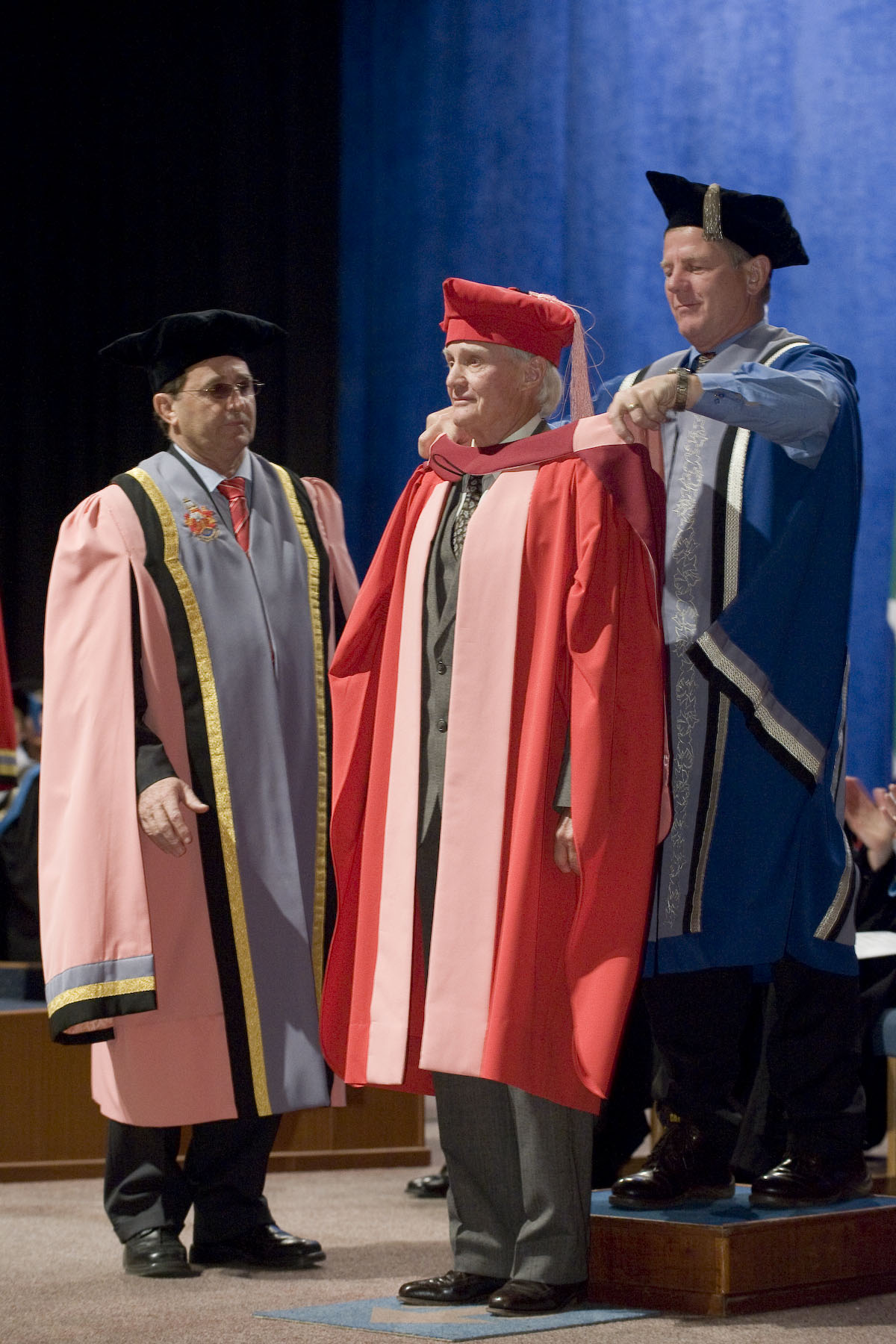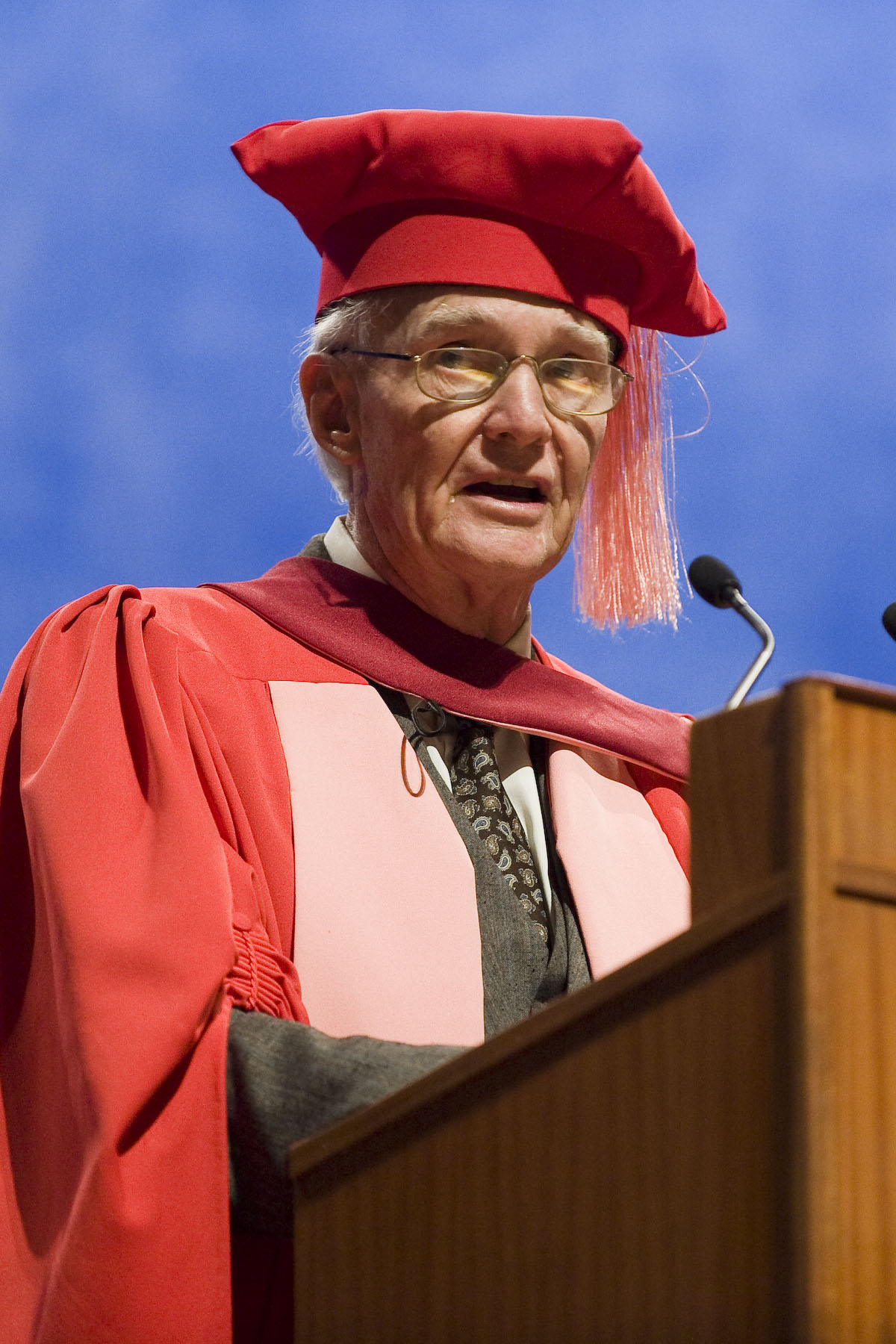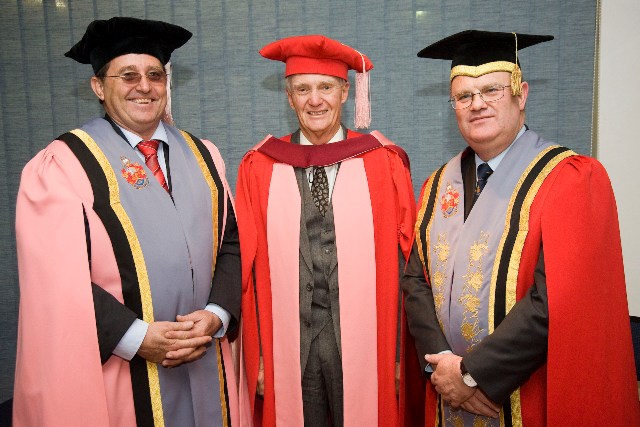Posted on June 09, 2008

Dr Rudolf Bigalke receives his Honorary Doctorate. On the left is the Dean of the Faculty of Veterinary Science, Prof Gerry Swan.
After qualifying as a veterinarian in 1953 Dr Bigalke was appointed in the Section Protozoology of the Onderstepoort Veterinary Institute (OVI) where he made his mark as researcher before moving through the ranks to eventually become the 9th director of the Institute in 1980. In 1988 he was promoted to Chief Director for Animal Production in the Department of Agriculture and in 1996 ended his career as Deputy Director General of the department.
In his acceptance speech at the ceremony Dr Bigalke stressed the importance of research for the maintenance of scientific standards in an applied scientific field such as Veterinary Science. In order to address the identified inadequate research output of the Faculty of Veterinary Science he suggested two radical steps: first an increased emphasis on teaching basic principles and subjects such as genetics, ecology, physiology, molecular biology, pharmacology, immunology and pathogenesis, thus empowering students to apply the principles themselves.
The second step is the exposure of undergraduates to research by active involvement in research projects. This would not only create an awareness of research as a career but also expose students to role models which in his experience is one of the strongest incentives to follow such a career.
To illustrate the importance of basic subjects, Dr Bigalke used the example of controlling internal parasites in animals. In the case of indigenous ungulates it is well known that they have developed a high level of genetically determined resistance to many parasites through a process of natural selection over millions of years. Yet it is standard procedure on commercial game farms to routinely dip and de-worm the animals, on the advice of veterinarians. Thus millions of years of ungulate evolution is being reversed and ideal conditions created for the parasites to develop resistance to the drugs used for treatment.
In contrast, in the case of Merino sheep researchers have developed the opposite approach by applying the principles of evolution. By means of a simple crush‑side technique non‑resistant animals are identified and eliminated, thereby building up a flock of wireworm resistant sheep. In addition, by reducing the need for treatment the selection pressure for the development of resistance by wireworms to the available remedies is reversed and costs to the farmer is reduced. This approach would not have been possible without understanding basic genetics and evolution.

Dr Bigalke delivers his acceptance speech at the graduation ceremony

Dr Bigalke (middle) after the ceremony toghether with Prof Calie Pistorius, Principal and Vice Chancellor of the University of Pretoria (right) and Prof Gerry Swan, Dean of the Faculty of Veterinary Science.
Copyright © University of Pretoria 2024. All rights reserved.
Get Social With Us
Download the UP Mobile App